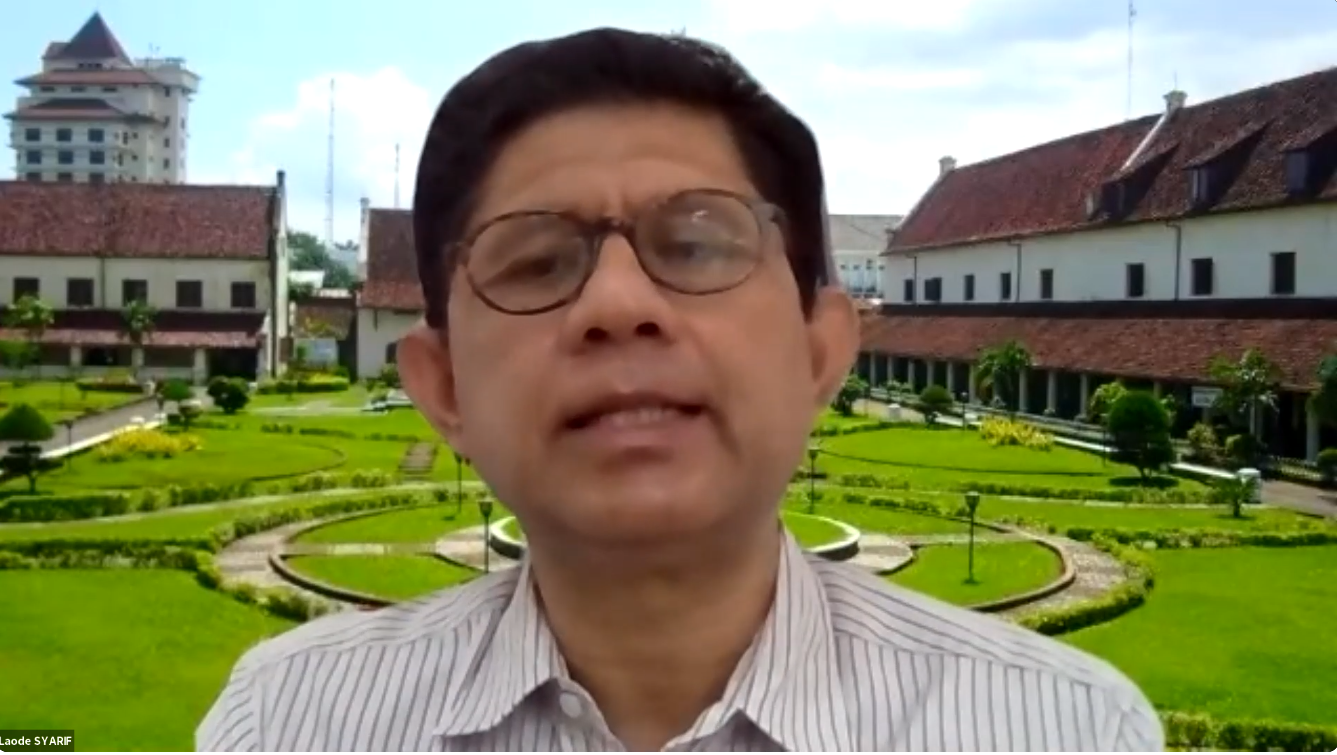
The government issued a series of policies to save its citizens from the threat of the COVID-19 pandemic. One of them allocates a budget for the National Economic Recovery (PEN) program and focuses on six targets. Namely health, social security, incentives for the business world, incentives for Micro, Small and Medium Enterprises, subsidies to companies, as well as donations to ministries/regional governments.
As one of the efforts to contribute to pushing the challenges of accountability, transparency and integrity in managing funds for the recovery of the COVID-19 pandemic, KEMITRAAN collaborates with AIPJ2 (Australia Indonesia Partnership for Justice 2). This collaboration is in carrying out a project activity called Boosting Rule of Law, Integrity and Democratic Governance through Civic Engagement [BRIDGE]. The project for 13 months from January 2021 to January 2022 aims to strengthen government policies and supervision by civil society towards the management of COVID-19 recovery funds that are accountable, transparent, targeted and with integrity.
Project BRIDGE launched a series of training activities for civil society actors in the project’s target areas, namely Kendari, Denpasar, Surabaya, and Medan. The BRIDGE project team collaborated with teams from Transparency International Indonesia (TII), the Alliance of Independent Journalists (AJI) and LaporCovid19 to carry out this capacity building activity.
According to Laode M. Syarif, Executive Director of KEMITRAAN, when he was one of the resource persons for this training, he said that the public should take measures to control COVID-19 funds. “Because it’s the people’s money, it’s all our money that we pay with taxes. But at the same time, don’t abuse it either.”

According to him, there are several reasons why public involvement is needed in the supervision of COVID-19 funds, one of which is because Law No. 2 of 2020 which is the basis for handling the COVID-19 pandemic is quite problematic, especially in Article 2 and Article 27. “Article 2 provides flexibility for the government, to relocate the budget without the approval of the DPR so that it has the potential to create vulnerabilities for misuse of the state budget/covid-19 funds.”
Meanwhile, in Article 27, Laode also mentioned that there is room for potential misappropriation of COVID-19 funds because all policies made by the government related to the response to the pandemic cannot be prosecuted civilly or criminally.
In addition to the law, he also regretted the issuance of the KPK Circular Letter.
“In the past, the KPK prohibited this kind of thing. But the KPK issued a Circular that allows government officials to collect donations and distribute them.”
“For example, the KPK, based on the KPK Circular, all Governors collect donations from the public. But is it all given or not?” said Sharif full of questions.
Finally, the circular letter from LKPP that allows direct appointments for government projects can be a big potential for corruption in pandemic funds.
“In the past, he (procurement was carried out by direct appointment) had to be Rp. 200 million and below. Now with this letter, it can be more than that. Therefore, the possibility of being misused is higher,” said Syarif in front of the training participants consisting of journalists, CSO activists and student press in four regions.
Furthermore, Agus Sarwono, from Transparency International Indonesia (TII) said that the potential for fraud was exacerbated by the government’s inability to absorb budget funds.
“If you look at the realization of the 2020 budget, the fact is that the incentives for the business world are not absorbed much,” Agus explained.
Also in the health sector, “The budget allocation is quite large, yes, approximately 95 trillion. But the fact is that if you look at the track, the absorption is actually the most at the end of the year. Even so, there is still a sizable remaining budget in the health sector,” Agus continued.
This condition needs attention from the public, in order to ensure that the state works optimally to help its citizens through the storm of the pandemic, and to ensure that the state does not lose money because its money is corrupted. overhauling the bureaucratic culture that was absorbed at the end?” Agus hoped.
Apart from Laode and Agus, the three-day training held by KEMITRAAN online from May 18-20th also involved resource persons from ICW, AJI and Laporcovid19.org. After the activity, it is hoped that the training alumni will be more active in overseeing the use of COVID-19 funds in their respective regions, and report their findings on the Laporcovid.org.






